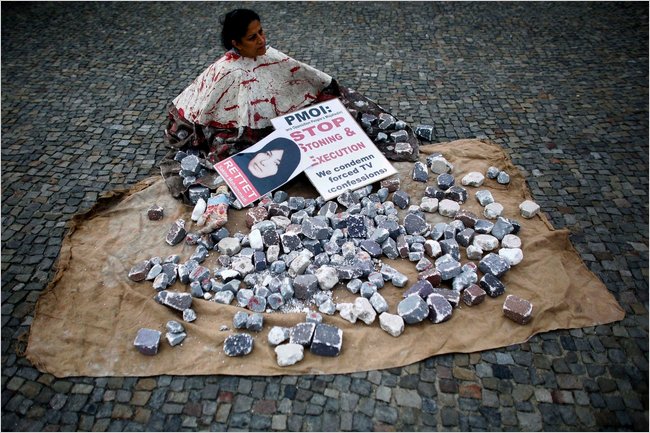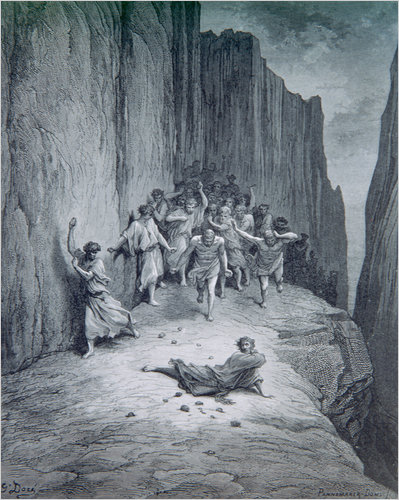| Want to send this page or a link to a friend? Click on mail at the top of this window. |
| More Books and Arts |
| Posted August 23, 2010 |
|
Crime (Sex) and Punishment (Stoning) |
|
|
|
|
 |
|
|
MARKUS SCHREIBER/ASSOCIATED PRESS |
|
| Outrage An Iranian woman sentence of stoning, given to a woman accused of adultery, led to protests like this one in Berlin. Iran then redefined her-crime as murder. |
|
By ROBERT F. WORTH |
 |
|
CORBIS |
| Literary Execution An engraving by French printmaker Gustave Doré of the stoning of St. Stephen, then published in Dante's "Purgatory" in 1868. |
| _______________________________ | |
|
|
|
| An act that seemed to violate the community's identity called for a communal response. | |
| _______________________________ |
| Wehaitians.com, the scholarly journal of democracy and human rights |
| More from wehaitians.com |